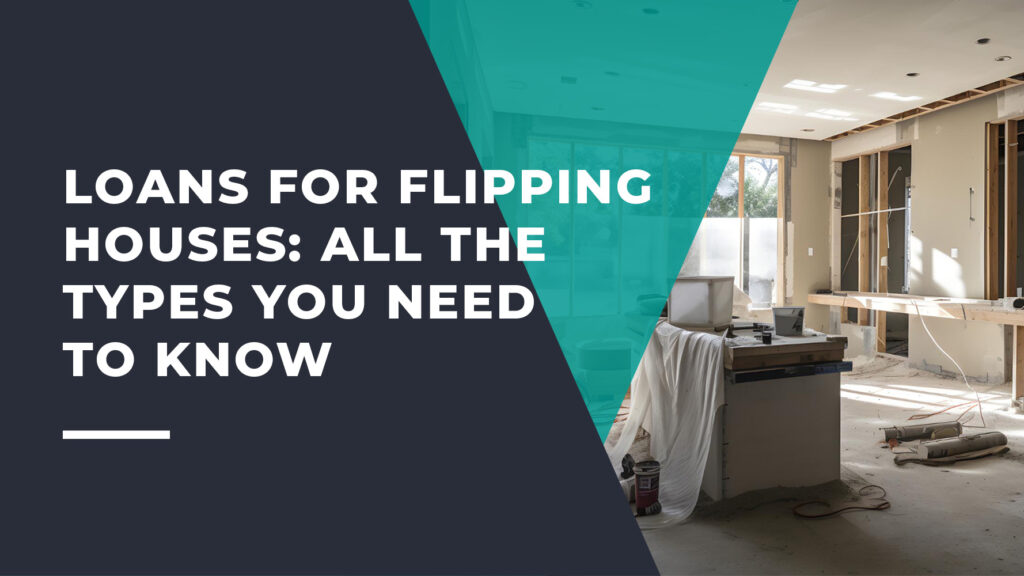When individuals are in search of a loan to purchase and subsequently flip a house, they’ll discover a range of alternatives beyond the conventional 15 or 30-year mortgage. The realm of loans tailored for house flipping encompasses a diverse array of financing choices.
The good news is that many of these loans offer a streamlined application process compared to a typical mortgage, resulting in quicker loan completion.
Prospective borrowers should equip themselves with a clear understanding of the advantages and disadvantages associated with different types of loans for house flipping. Often, the loan terms are influenced by prevailing mortgage rates.
Therefore, it’s crucial for borrowers to stay attuned to market trends, ensuring the best possible rates for specific loan categories.
Costs Involved with Flipping Houses
In the context of purchasing a residential property, the foremost concern for an individual is typically the monthly mortgage premium. While homeownership entails additional expenditures, the mortgage payment generally constitutes the most substantial monthly outlay.
However, the dynamics shift when it comes to the practice of house flipping. Prospective flippers must not only secure additional financing but also account for a range of ancillary expenses associated with the endeavor, beyond the standard costs of owning a property for a specific duration. These encompass:
- The Down Payment: A prerequisite for various types of loans utilized in house flipping ventures.
- Financing Costs: While conventional mortgages can offer comparatively low interest rates, alternative loans tailored for house flipping may carry rates of 10 percent or even higher.
- Homeowner’s Insurance: Irrespective of the intended ownership duration, a suitable insurance policy is imperative during the ownership period.
- Renovation Costs: Flipping enterprises necessitate a comprehensive inclusion of anticipated renovation expenses.
- Real Estate Costs: Additionally, one must consider the real estate agent commission fees, which the seller incurs upon selling the property. This element can exert a notable downward impact on the overall profit margin.
How to Choose the Right Loans for Flipping Houses
Selecting the appropriate loan for house flipping is a critical decision that can significantly impact the success of the venture. The diverse array of financing options available demands a thorough evaluation to ensure that the chosen loan aligns with the unique requirements and goals of the flipping project.
First and foremost, it’s essential to consider the timeline of the project. Short-term loans, such as fix and flip loans or bridge loans, are often favored for house flipping due to their relatively quick approval process and flexible terms.
These loans are specifically designed to cater to the rapid turnaround time required for flipping, providing the necessary funds to purchase and renovate the property.
Another crucial factor in loan selection is the financial health and creditworthiness of the borrower. Conventional loans, like traditional mortgages, can be a suitable option for experienced flippers with strong credit profiles and stable financial backgrounds.
These loans often come with more favorable interest rates and terms, making them an attractive choice for those who can meet the stringent eligibility criteria.
On the other hand, individuals with less-than-ideal credit scores or limited financial history might find it more viable to explore alternative lending options that focus on the property’s potential rather than the borrower’s credit history.
Qualifying for a Loan for House Flipping
When it comes to actually qualifying for a loan this regard is also another thing you need to keep in mind when attempting to flip a house of your choice but fear not because in this section we will focus mainly on that!
One of the primary considerations is the borrower’s creditworthiness. A strong credit score, usually above 620 for conventional loans, demonstrates a history of responsible credit management.
Lenders scrutinize credit reports to assess the borrower’s payment history, outstanding debts, and credit utilization. Maintaining a good credit score by paying bills on time, managing credit balances, and minimizing unnecessary credit inquiries can significantly enhance the chances of loan approval.
Financial stability and income play a pivotal role in the loan approval process. Lenders assess the borrower’s debt-to-income (DTI) ratio, which compares the monthly debt payments to the monthly income.
Generally, a DTI ratio of 43% or lower is preferred for conventional loans. A stable employment history and consistent income streams reassure lenders about the borrower’s ability to meet monthly mortgage obligations.
Providing accurate and up-to-date financial documentation, such as tax returns, pay stubs, and bank statements, is essential to demonstrate financial stability.
Down payment and available funds are additional key determinants. While the specific down payment requirement varies based on the loan type and lender, having a substantial down payment, ideally 20% or more of the home’s purchase price, can strengthen an application.
It not only lowers the loan amount but also showcases the borrower’s commitment and financial capability. Furthermore, having sufficient reserves beyond the down payment, covering several months’ worth of mortgage payments, property taxes, and insurance, reinforces the borrower’s preparedness to manage homeownership expenses.
Bottom Line
From establishing a strong credit foundation to demonstrating financial stability and prudent planning, each step contributes to the journey toward homeownership.
Remember, the path to securing a house loan involves not only meeting the lender’s requirements but also setting yourself up for a confident and successful homeownership experience.
By proactively addressing the criteria outlined in this article, you position yourself to unlock the doors to your dream home and embark on a new chapter of financial responsibility and homeownership satisfaction.
As you get on this exciting endeavor, may your endeavors be marked by careful preparation, informed decisions, and the realization of your homeownership aspirations.
Happy investing!

